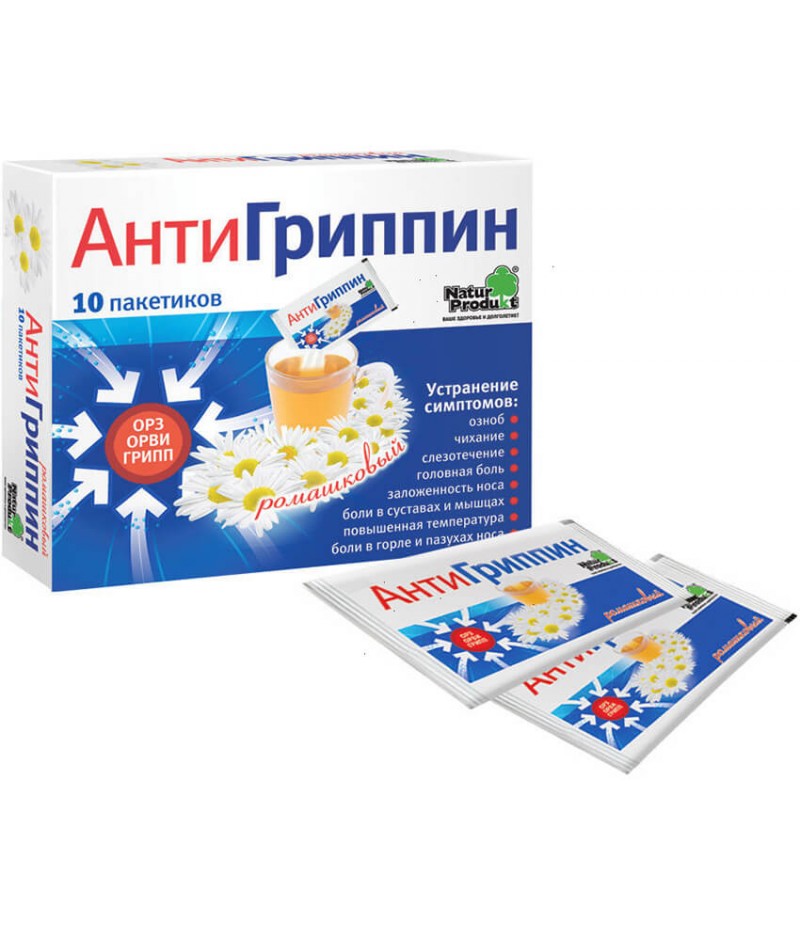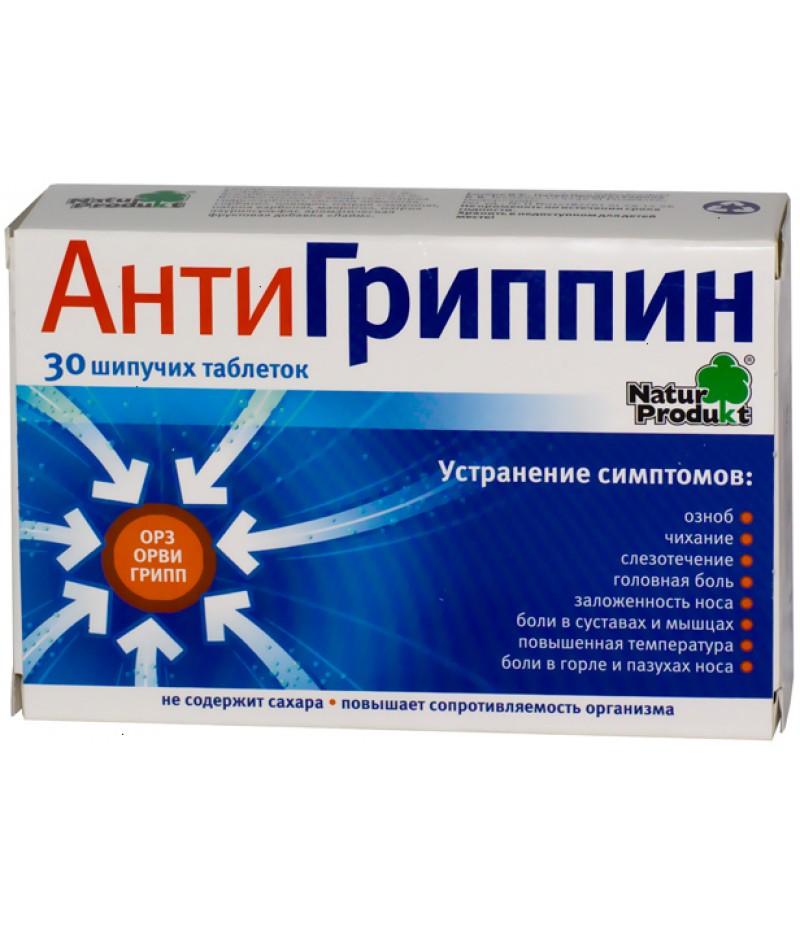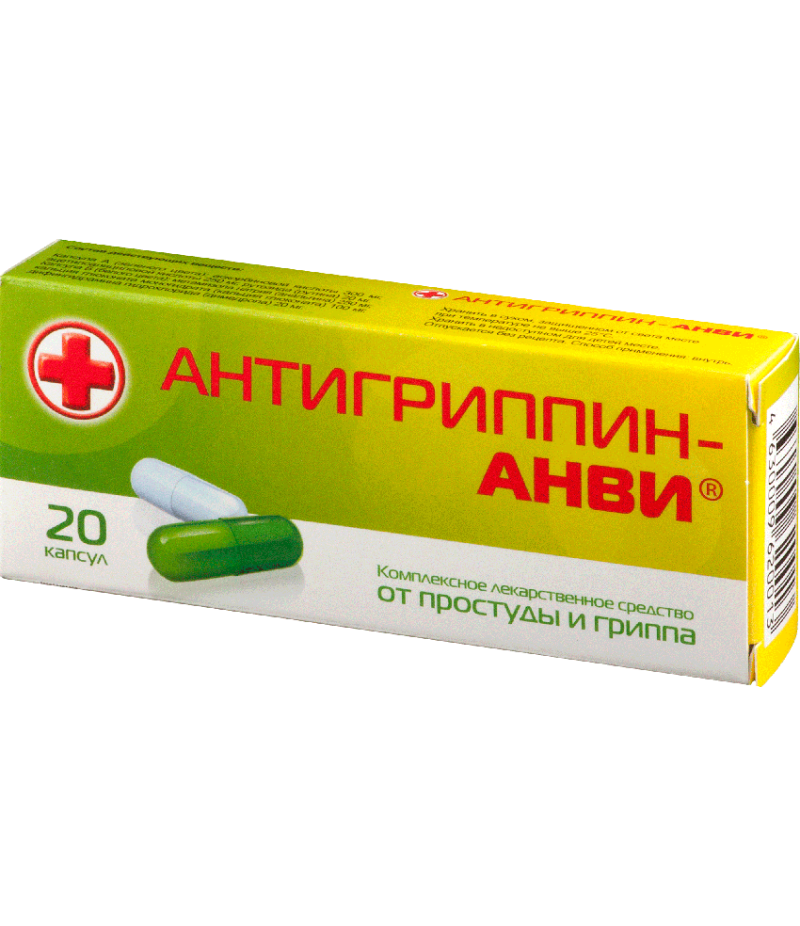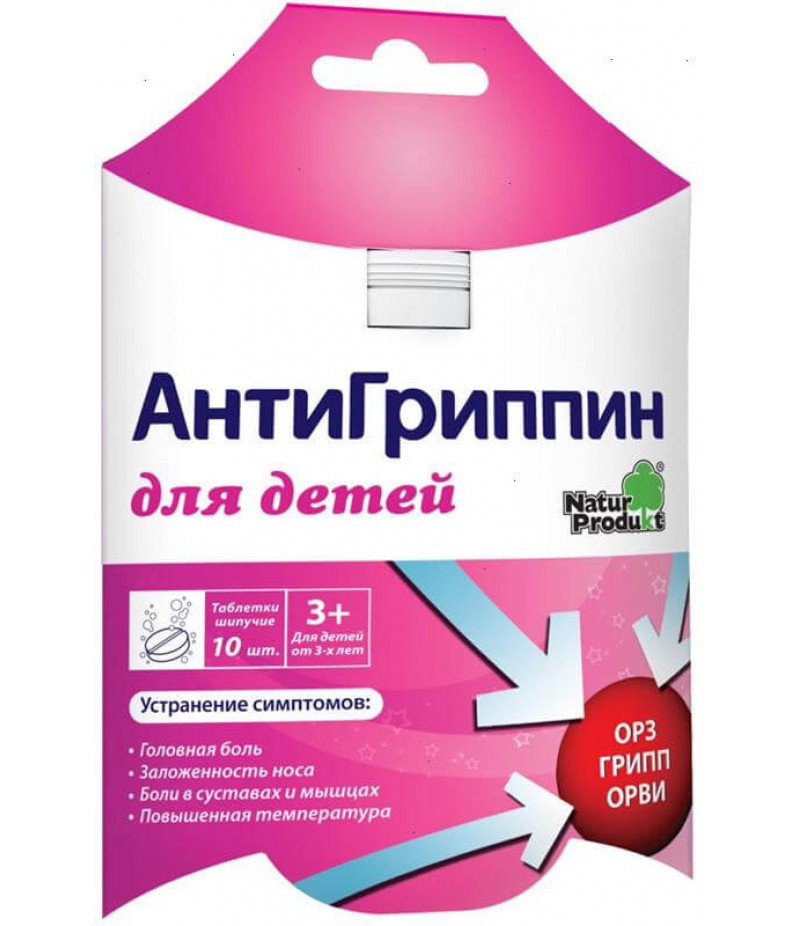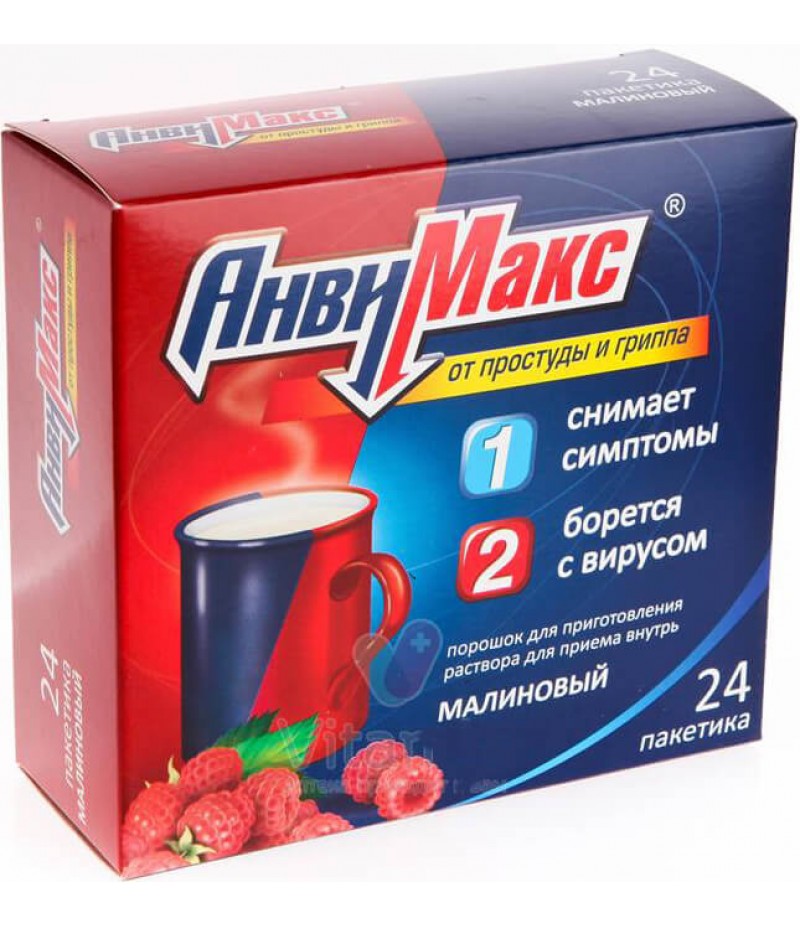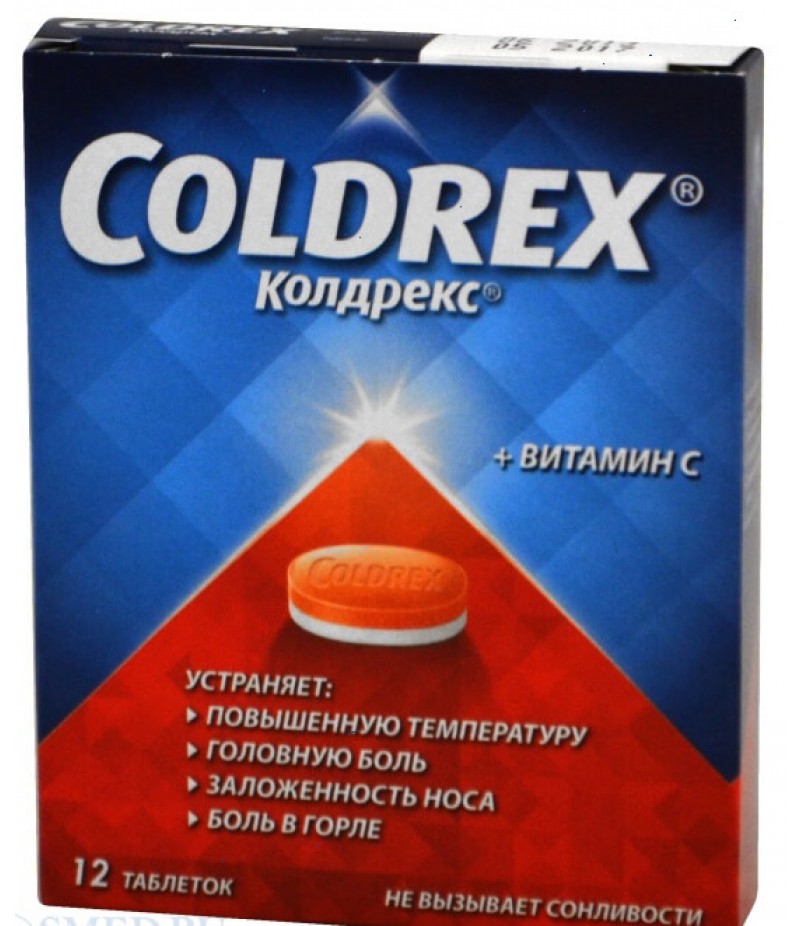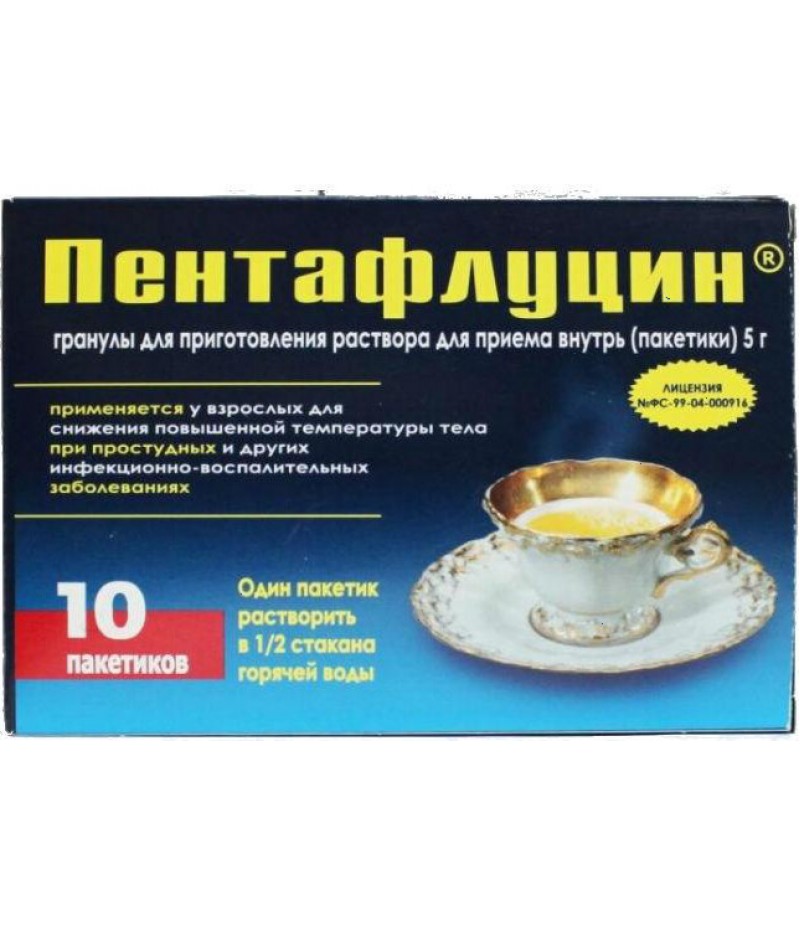Antigrippin powder 5gr #10
- $16.76
- 3 or more $16.53
- Availability:In Stock
Antigrippin powder instruction for useYou can buy Antigrippin powder hereForm of release, composition and packagingPowder for the preparation of solution for ingestion of honey-lemon or chamomile.1 pa
Tags: powder
Antigrippin powder instruction for use
You can buy Antigrippin powder here
Form of release, composition and packaging
Powder for the preparation of solution for ingestion of honey-lemon or chamomile.
1 pack.
paracetamol 500 mg
chlorphenamine maleate 10 mg
ascorbic acid 200 mg
5 g - Sachets from the combined material (10) - packs cardboard.
pharmachologic effect
Combined drug.
Paracetamol has an analgetic and antipyretic effect; eliminates headache and other types of pain, reduces fever.
Ascorbic acid (vitamin C) is involved in the regulation of oxidation-reduction processes, carbohydrate metabolism, increases the body's resistance.
Chlorphenamine is a blocker of H1-histamine receptors, has an antiallergic effect, facilitates breathing through the nose, reduces the feeling of nasal congestion, sneezing, lacrimation, itching and redness of the eyes.
Indications
- Infectious and inflammatory diseases (acute respiratory infections, influenza), accompanied by fever, chills, headache, joint and muscle pains, nasal congestion and pains in the throat and sinuses of the nose.
Contraindications for Antigrippin powder
- hypersensitivity to paracetamol, ascorbic acid, chlorphenamine or any other component of Antigrippin powder;
- erosive-ulcerative lesions of the gastrointestinal tract (in the phase of exacerbation);
- marked renal and / or liver failure;
- Alcoholism;
- an angle-closure glaucoma;
- phenylketonuria;
- hyperplasia of the prostate;
- children's age till 15 years;
- pregnancy and lactation.
With caution: renal and / or hepatic insufficiency, deficiency of glucose-6-phosphate dehydrogenase, congenital hyperbilirubinemia (Gilbert syndrome, Dubin-Johnson and Rotor syndrome), viral hepatitis, alcoholic hepatitis, elderly age.
Dosage
Inside. Adults and children over 15 years - 1 packet 2-3 times a day. The contents of the sachet should be completely dissolved in a glass (200 ml) of warm water (50-60 ° C) and the resulting solution immediately drunk. It is better to take Antigrippin powder between meals. The maximum daily dose is 3 sachets. The interval between doses should be at least 4 hours.
In patients with impaired liver or kidney function and in elderly patients, the interval between doses should be at least 8 hours.
Duration of admission without consulting a doctor is no more than 5 days when prescribed as an anesthetic and 3 days as an antipyretic.
Side effects of Antigrippin powder
Antigrippin powder is well tolerated at recommended doses.
In single cases there are:
from the side of the central nervous system: headache, fatigue;
From the gastrointestinal tract: nausea, pain in the epigastric region;
from the endocrine system: hypoglycemia (up to the development of coma);
from the hemopoiesis: anemia, hemolytic anemia (especially for patients with deficiency of glucose-6-phosphate dehydrogenase); extremely rare - thrombocytopenia;
allergic reactions: skin rash, itching, urticaria, Quincke's edema, anaphylactoid reactions (including anaphylactic shock), erythema multiforme exudative (including Stevens-Johnson syndrome), toxic epidermal necrolysis (Lyell's syndrome);
Other: hypervitaminosis C, metabolic disorders, sensation of heat, dry mouth, paresis of accommodation, urinary retention, drowsiness. All side effects of Antigrippin powder should be reported to the doctor.
Overdose with Antigrippin powder
Symptoms of an overdose of Antigrippin powder are due to the substances in its composition. The clinical picture of acute intoxication with paracetamol develops within 6-14 hours after its administration. Symptoms of chronic intoxication appear after 2-4 days after an overdose.
Symptoms of acute intoxication with paracetamol: diarrhea, decreased appetite, nausea and vomiting, abdominal discomfort and / or abdominal pain, increased sweating.
Symptoms of intoxication with chlorphenamine: dizziness, agitation, sleep disorders, depression, convulsions.
Treatment: symptomatic.
Drug Interactions
Ascorbic acid
- increases the concentration in the blood of benzylpenicillin and tetracyclines;
- improves absorption in the intestine of iron preparations (converts trivalent iron into bivalent); can increase excretion of iron with simultaneous application with deferoxamine;
- increases the risk of developing crystalluria in the treatment of short-acting salicylates and sulfonamides, slows the excretion of acids by the kidneys, increases the excretion of drugs that have an alkaline reaction (including alkaloids), and reduces the concentration of oral contraceptives in the blood.
- Increases the total clearance of ethanol;
- with simultaneous application reduces the chronotropic effect of isoprenaline.
Can both increase and decrease the effect of anticoagulant drugs. Reduces the therapeutic effect of antipsychotics (neuroleptics) - phenothiazine derivatives, tubular reabsorption of amphetamine and tricyclic antidepressants.
Simultaneous reception of barbiturates increases the excretion of ascorbic acid in the urine.
Chlorphenamine maleate
Chlorphenamine maleate enhances the effect of hypnotic drugs.
Antidepressants, antiparkinsonics, antipsychotics (phenothiazine derivatives) - increase the risk of side effects (urinary retention, dry mouth, constipation). Glucocorticosteroids - increase the risk of developing glaucoma. Ethanol enhances the sedative effect of chlorphenamine maleate.
Paracetamol
In the interaction of paracetamol and inducers of microsomal oxidation in the liver (phenytoin, ethanol, barbiturates, rifampicin, phenylbutazone, tricyclic antidepressants), production of hydroxylated active metabolites increases, which makes it possible to develop severe intoxications with small overdoses.
Against the background of taking paracetamol, ethanol promotes the development of acute pancreatitis ..
Inhibitors of microsomal oxidation (including cimetidine) reduce the risk of hepatotoxic effects.
Simultaneous reception of diflunisal and paracetamol increases the concentration in the blood plasma of the latter by 50%, increasing hepatotoxicity. Simultaneous reception of barbiturates reduces the effectiveness of paracetamol.
Paracetamol reduces the effectiveness of uricosuric drugs.
special instructions for Antigrippin powder
When taking metoclopramide, domperidone, or colestyramine, it is also necessary to consult a doctor.
With prolonged use in doses much higher than recommended, the probability of impaired liver and kidney function is increased, control of the peripheral blood picture is necessary.
Paracetamol and ascorbic acid may distort laboratory performance indicators (quantitative determination of glucose and uric acid in blood plasma, bilirubin, activity of "liver" transaminases, LDH).
To avoid toxic damage to the liver, paracetamol should not be combined with the intake of alcoholic beverages, and should also be taken to persons prone to chronic alcohol consumption. The risk of liver damage increases in patients with alcoholic hepatosis.
Assigning ascorbic acid to patients with rapidly proliferating and intensely metastatic tumors can aggravate the course of the process. In patients with elevated iron levels in the body, ascorbic acid should be used in minimal doses.
In one bag of honey-lemon contains 1.793 g of sugar, which corresponds to 0.15 XE.
In one bag of chamomile contains 2.058 g of sugar, which corresponds to 0.17 XE.
Pregnancy and lactemia
Contraindicated in pregnancy and lactation.
Application in childhood
Contraindicated for children under 15 years. Children older than 15 years - 1 packet 2-3 times a day.
In case of violations of kidney function
With caution in kidney failure.
With violations of liver function
With caution in liver failure.
Application in old age
With caution in old age.
Conditions of leave from pharmacies
To buy Antigrippin powder you don't need a prescription.
Terms and conditions of storage
In a dry place at a temperature of 10 to 30 ° C. Keep out of the reach of children! Shelf life - 3 years.

